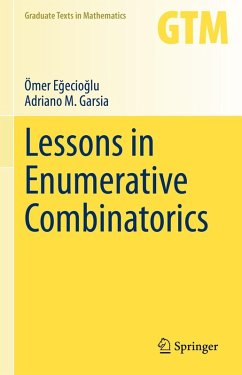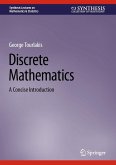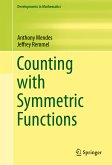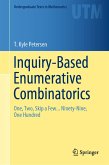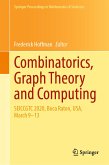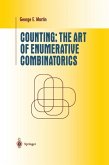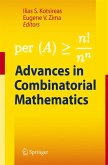Beginning with the basics of formal languages, the first chapter quickly establishes a common setting for modeling and counting classical combinatorial objects and constructing bijective proofs. From here, topics are modular and offer substantial flexibility when designing a course. Chapters on generating functions and partitions build further fundamental tools for enumeration and include applications such as a combinatorial proof of the Lagrange inversion formula. Connections to linear algebra emerge in chaptersstudying Cayley trees, determinantal formulas, and the combinatorics that lie behind the classical Cayley-Hamilton theorem. The remaining chapters range across the Inclusion-Exclusion Principle, graph theory and coloring, exponential structures, matching and distinct representatives, with each topic opening many doors to further study. Generous exercise sets complement all chapters, and miscellaneous sections explore additional applications.
Lessons in Enumerative Combinatorics captures the authors' distinctive style and flair for introducing newcomers to combinatorics. The conversational yet rigorous presentation suits students in mathematics and computer science at the graduate, or advanced undergraduate level. Knowledge of single-variable calculus and the basics of discrete mathematics is assumed; familiarity with linear algebra will enhance the study of certain chapters.
Dieser Download kann aus rechtlichen Gründen nur mit Rechnungsadresse in A, B, BG, CY, CZ, D, DK, EW, E, FIN, F, GR, HR, H, IRL, I, LT, L, LR, M, NL, PL, P, R, S, SLO, SK ausgeliefert werden.
Hinweis: Dieser Artikel kann nur an eine deutsche Lieferadresse ausgeliefert werden.
"A whole book whose backbone is enumeration by codifying the objects to be enumerated as words. ... They do this in a skillfully structured fashion which makes the connections natural and unforced. ... One of the remarkable features of this book is the care the authors have taken to make it reader-friendly and accessible to a wide range of students following a graduatemathematics course or an honours undergraduate course in mathematics and computer science." (Josef Lauri, zbMATH 1478.05001, 2022)

